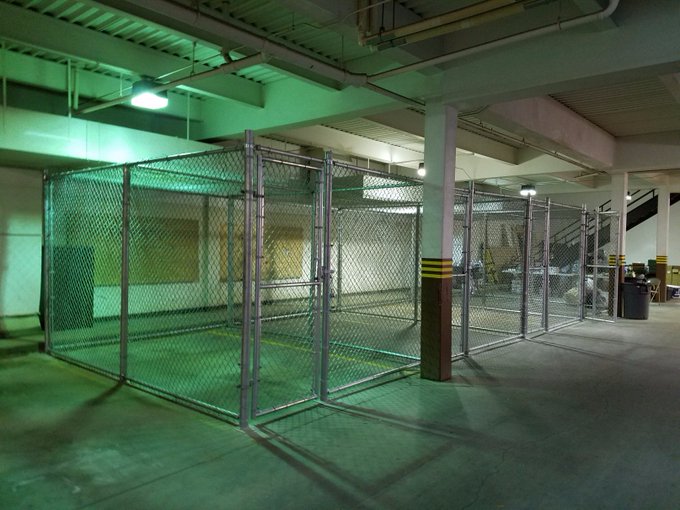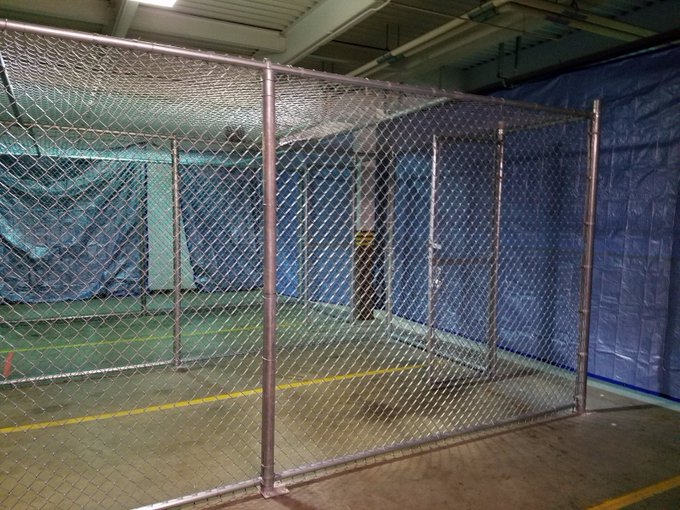U.N. officials denounce ‘inhuman’ treatment of Native American pipeline protesters
 Guard dogs attack each other as private security guards confront Native American protesters and their supporters at a work site for the Dakota Access oil pipeline near Cannonball, N.D., on Sept 3. (Robyn Beck/AFP/Getty Images)
Guard dogs attack each other as private security guards confront Native American protesters and their supporters at a work site for the Dakota Access oil pipeline near Cannonball, N.D., on Sept 3. (Robyn Beck/AFP/Getty Images)
 Guard dogs attack each other as private security guards confront Native American protesters and their supporters at a work site for the Dakota Access oil pipeline near Cannonball, N.D., on Sept 3. (Robyn Beck/AFP/Getty Images)
Guard dogs attack each other as private security guards confront Native American protesters and their supporters at a work site for the Dakota Access oil pipeline near Cannonball, N.D., on Sept 3. (Robyn Beck/AFP/Getty Images)
The United Nations' special rapporteur on the rights of freedom of association and peaceful assembly released a forceful statement Tuesday, calling out U.S. security forces for using violence against protesters peacefully opposing the construction of the Dakota Access pipeline in North Dakota, as well as what he called “the inhuman and degrading conditions” those arrested faced in detention.
The official, Maini Kiai, is a reputed human rights lawyer from Kenya who also traveled to the United States this summer to survey mounting racial tensions in the lead-up to last week's presidential election. His statement on the protests in North Dakota, which are largely being carried out by Native Americans, was endorsed by a slew of other high-ranking U.N. officials, including special rapporteurs on drinking water, the environment, free speech, cultural rights and the rights of indigenous peoples.
Kiai said that security forces, both public and private, had used unjustified force in dealing with and detaining more than 400 protesters.
“Protesters say they have faced rubber bullets, tear gas, mace, compression grenades and beanbag rounds while expressing concerns over environmental impact and trying to protect burial grounds and other sacred sites of the Standing Rock Sioux Tribe” on whose land the ongoing pipeline construction is taking place, according to the statement provided by Kiai's office.
The statement notes that Kiai acknowledged that some protesters had resorted to violence, too, but that the response of security officials was disproportionate and targeted protesters who were doing so peacefully.
U.N. officials have been taking U.S. security forces and its government to task more frequently. For instance, in September, a U.N.-affiliated group released a report that concluded that the country's history of slavery justifies reparationsfor a large portion of its African American population. “There has been no real commitment to reparations and to truth and reconciliation for people of African descent,” the report stated.
Judging by Kiai's statement on the treatment of Native Americans opposing the Dakota Access pipeline, it is likely he would say much the same about the treatment of that group in the context of American history.
The 1,172-mile pipeline is being built by Energy Transfer Partners. It will carry crude oil from the Bakken oil fields in North Dakota to a refinery in Illinois. Proponents of the pipeline say that it will help the U.S. achieve energy independence, and that the pipeline would be far more efficient than oil transport by rail.
Energy Transfer Partners says the pipeline does not pose health risks and wouldn't harm cultural sites.
Yet the pipeline's path has been a major source of discontent. The pipeline was originally supposed to pass close to North Dakota's capital, populated mostly by residents of European descent, but that route did not pass muster in an environmental impact assessment. It was determined that wells that provided drinking water to the capital could be adversely affected. In turn, the route was shifted to pass through the ancestral lands of the Standing Rock Sioux tribe, who hold the land to be sacred. Protesters say several sacred sites on that land have already been bulldozed.
The protests against the pipeline have brought Native Americans from all over the country together, in what has been called the biggest gathering of tribes in more than a century. They have been joined by environmental and social activists. For months, thousands have camped out on federally owned land, seeking to halt the pipeline's construction, which is already almost finished, but for the section in North Dakota.
Tribal leaders have criticized law enforcement for their heavy-handed crackdown. They say more than 40 people were injured by pepper spray and beanbag rounds fired by authorities, while others were humiliated by their treatment while in custody. Kiai's statement touches on the same humiliation: “Marking people with numbers and detaining them in overcrowded cages, on the bare concrete floor, without being provided with medical care, amounts to inhuman and degrading treatment.”
North Dakota Highway Patrol Capt. Brian Niewand told the Bismarck Tribune that his officers used force sparingly and tried to arrest only those who attacked authorities or refused to leave the area.
“Showing that respect for all the people that are out there, whether they are white, black, Native American, it doesn’t matter; we respect everybody,” he said in a news conference Friday. “The actions of some caused us to have to use force in certain circumstances, which was very, very unfortunate.”
More than 200 protests against the pipeline are planned across the United States on Tuesday, including in front of the Army Corps of Engineers offices, federal buildings and banks that have helped finance the project. Protesters are hoping that President Obama will step in and use his executive powers to halt construction.
The Army Corps of Engineers, which has limited oversight on the project, said Monday that it has finished its own review of the new route but wants more tribal input before deciding whether it should be allowed to cross under the Missouri River, which provides drinking water to millions downstream.
Energy Transfer Partners said it expects it to make the pipeline operational early next year if government agencies clear the legal path.
On Monday, an industry group that supports the Dakota Access pipeline saidthe corps' latest postponement of approval is an attempt at “death by delay.” The spokesman for the Midwest Alliance for Infrastructure Now (MAIN) coalition said the bureaucratic delays are an example of why voters rejected Democrats in last week’s election and that he hoped that President-elect Donald Trump would have the final word.




